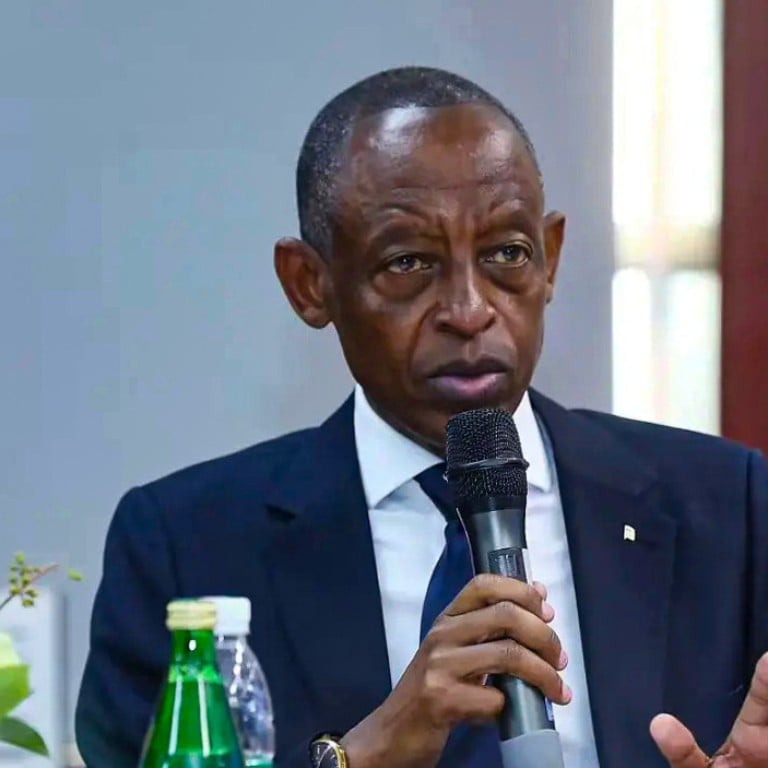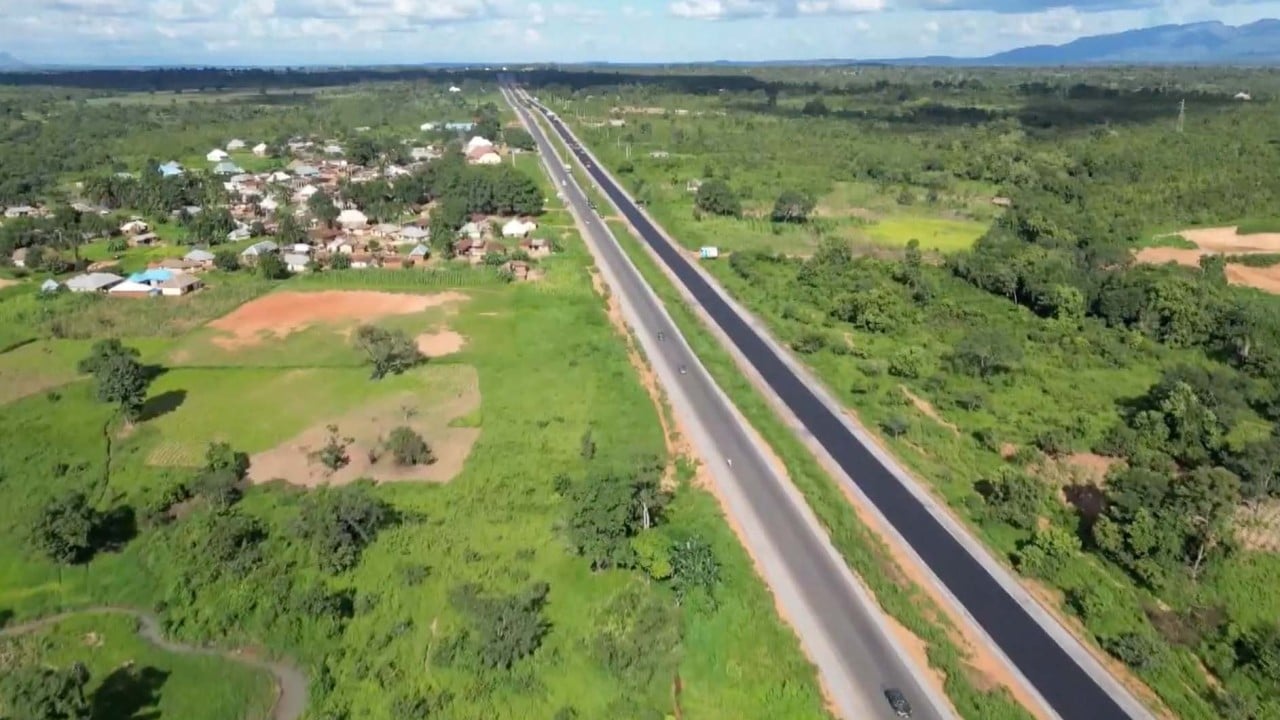
Exclusive | ‘We can’t be bullied’: Rwanda won’t take sides in US-China rivalry, envoy says
- Rwandan envoy James Kimonyo says both the US and China are his country’s friends and tensions between the two should be settled systematically
- Kimonyo dismisses claims that Beijing is pursuing debt-trap diplomacy in Africa as illogical
“The United States is our friend. In the same way, China is our friend,” he said. “We can’t be bullied, we can’t be forced. We think China is a very good friend of ours and nobody can tell us otherwise.”
Kimonyo, who was Rwanda’s envoy to the US from 2007 to 2013, said that if issues arose among major powers, there should be a “framework” to address them.
In the case of the US and China, he noted, the two countries had had a series of meetings and high-profile visits even when they disagreed on some issues.
“For us, we are very categorical and very clear that you cannot come to us … and force us to choose our friends,” Kimonyo said. “That’s our sovereign issue and we decide on our own destiny.”
As for the more controversial issues dividing the major powers such as China’s alleged human rights abuses in Xinjiang, the seasoned diplomat said “these are purely internal matters of China, period”.
But Kimonyo dismissed those arguments as “illogical”.
“When we meet with China, we discuss these projects based on our national priorities – unless you want to assume that we’re stupid, that we can’t think and we can’t set priorities for our countries,” he said.
“China has never ever – even before I came to China, I know for a fact – come to a country and said I want to build you a road, I want to build this hospital, I want to do this project,” he added.
Belt and road projects in Rwanda range from infrastructure such as roads and bridges to resources like energy and water supply. Both sides have lauded the cooperation.
As one example of China’s consistent efforts to help Africa, Kimonyo cited former Chinese leader Mao Zedong’s support for the region – even as the Chinese economy was struggling.
In the 1960s under Mao’s leadership, China set up factories and helped build a railway linking landlocked Tanzania and Zambia, which was China’s first major engineering project in Africa, he said.
“If someone started doing that when he was still poor himself, then this person has a good heart. It’s not about now that China suddenly wakes up and they want to invade Africa and steal and put them in a debt trap,” he said.
“Honestly, I don’t want to use a language that isn’t diplomatic but it’s just ridiculous to say Africans cannot think.”
‘Mutual benefit’ as China sends top doctors to Rwanda in healthcare diplomacy
He said Rwanda – including much of its infrastructure – was “destroyed” during the genocide, a period he described as “very terrible and difficult”.
Rwandan President Paul Kagame rebuilt the country through extensive economic reforms but Kimonyo said the country’s recovery was also buoyed by the support of the international community.
China, in particular, had “stayed on the forefront in terms of supporting Rwanda in [its] socio-economic transformation agenda” and Beijing’s investments had placed China “at the centre of [Rwanda’s] transformation”.
“There’s a whole range of programmes that China has been investing money in … which in so many ways, China has been really helpful to many African countries,” he said. “That’s why our relations with China have been very, very positive and very productive.”
China is already Rwanda’s biggest source of foreign direct investment but Kimonyo said there were still many areas of cooperation – from infrastructure to education and healthcare – and he expected that investment to grow.
He said there was also much to learn from China in terms of technology and innovation as Rwanda sought to transform itself into a tech hub and middle-income country.
At the commemorative event on Sunday, Wu Peng, the Chinese foreign ministry’s director general of African affairs, pledged China’s support for Rwanda’s development and deeper ties between the two countries.
“We will continue to support Rwanda in following a development path compatible with its realities, further deepen bilateral relations and promote practical cooperation for greater benefits of our two peoples,” he said.
“I believe the Chinese government wants, through FOCAC, to make our own contribution to peace in Africa to avoid this tragic genocide from happening again,” he added, referring to the Forum on China-Africa Cooperation which is set to hold its next iteration in Beijing later this year.
“China always views and develops its relations with Africa from a strategic and long-term perspective. We will continue to stand firmly with our African brothers.”


